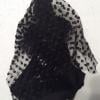Search the Community
Showing results for 'autoimmune'.
Found 1,088 results
-


Hello there! I'm new with a Feb 12th band date
SkinnyCubanChick replied to Cindy2013's topic in Tell Your Weight Loss Surgery Story
You can do this! I have had 8 surgeries, comorbidies and an autoimmune problem but banding has saved my life! I should have done this much sooner! 19 days post op and down 26 pounds! -
Following this topic bc it's of interest to me. I'm wanting to know about beyond Aleve and other NSAIDS. I'm curious about the "big guns" biologic medications for like Rheumatoid Arthritis which I have. Remicade IV is my drip - but haven't been able to get my infusion for months due to surgeries (2 including the GB RNY) which has left me reeling in inflammatory pain off and on.... I'm hopeful though, bc although RA is autoimmune, I know the extra fat doesn't help!
-


Celiac disease diagnosis years after RNY
KyHiker replied to Brandy36's topic in Gastric Bypass Surgery Forums
I feel like I found my peep in you, Brandy. So it sounds like you and I have some similarity in our journey. I have a few recommendations for you that have helped me immensely. #1 read Hashimoto's, The Root Cause by Isabella Wentz. I felt like she explained my entire medical history. You may also consider The Paleo Approach, Reverse Your Autoimmune Disease and Heal Your Body. There's more out there too. The blog SCDlifestyles is worthy and I keep getting recommendations for The Body Ecology Diet, which I haven't read. I went off gluten because my doc told me to and I felt bad enough to do it. And she recommended Wentz's book. Going off gluten I found out why I had choking spells since college. That said, going off gluten was hell, so I did the radical jump start with the amino acids that Wentz describes in the book, and my gut hasn't been this calm since I was a child, and I am not exaggerating. I'm now on a healing diet and admittedly a bit lost. I'm going to do some Alletess testing (food intolerance testing) and more research. Haven't been able to add many foods, so going to test vs elimination diet. I'm still working through things, but I feel empowered and hugely improved. A year ago I had chronic fatigue so bad I didn't do squat and every joint hurt, and for awhile my hand hung as if dead. I'm 51 and I get where you're coming from about feeling 80+. But 4 months into a radical diet and I'm getting closer to my age, but about 15 years to go, wink. The the resources I provided are riddled with references to current research, but much of it is not known or embraced widely by allopathic medicine. Me, I'm just going for results, and radically changing my eating is giving me results. As Schoolass mentioned, when you eliminate foods that cause you problems, eating them again will amplify the problems, which is motivation to give them up! Keep your chin up and do your own research. I asked docs for 10 years and got nothing. Then I got sick enough to go to the internet and take responsibility for my own healing, and now I have hope. I didn't find that doc who told me about the gluten and Wentz book until I started my own research. I trust you will feel better if you work it. -
Depending on where you live in the country Vitamin D is very common in not only obese people but in people that might see the sun 5 days a year. LOL not really but it seems that way in upstate N.Y. The deficiency has been linked with everything from cancer to autoimmune diseases. Take your Vits and give yourself the best chance at a healthy life!!
-


Waiting! Getting closer to having my VSG surgery!
mountain_lover posted a topic in Tell Your Weight Loss Surgery Story
Hello, I am here to tell my story. I decided to have surgery almost a year ago. I went to one of Dr. Husted's seminars and began the process of my weigh-ins, tests, and learning about the surgery procedure. I have completed all my tests. If the last test results come back "ok" Thursday, then I will be ready to turn them in to the surgeon. I am also waiting for my phyciatric evaluation to be turned in this week or next. Right after they receive this information, they will submit it to my insurance to see if I am approved for the VSG surgery and if I am, I will receive my pre-op packet with my surgery date. I will begin my pre-op diet of milk shakes. Dr. Husted told me that I would be on the pre-op diet for two weeks before the surgery. I started my weigh-ins the month of Feb. 2009 and my weight was at 253. I have lost and gained several times. My weight reached upwards to 266 and I weighed in at 244 this month. I am hoping that I will lose some more with the pre-op diet. I have sleep apnea, high blood pressure, arthritis, fybromyalgia, mixed connective tissue autoimmune disorder and some other health issues related to my obesity. I have had a total knee replacement last year, now I don't have to walk with a cane! I am waiting, hoping and praying that I will be approved for the surgery. I want to have the surgery and lose weight to live a longer healthier life. I am learning many things from all the people who are posting on these forums, and I hope one day soon that I will be able to help others from my experience. Thank you all for being here!!! I will try to keep you updated on my surgery date, and my progress. -


Autoimmune Disorders and the Lapband NOT Compatable
☠carolinagirl☠ replied to Baba Wawa's topic in PRE-Operation Weight Loss Surgery Q&A
i tried to read the link and i saw alot of big words so i stopped reading. i am not a doctor. so i thought to myself...if i had a disease (autoimmune or whatever) i would refer to my doctor for their opinion as i figured they would advise me on if a wls is for me. i think all people and all doctors opinions will vary per case...just because one study says something, does not mean it is always true. -


Autoimmune Disorders and the Lapband NOT Compatable
Baba Wawa posted a topic in PRE-Operation Weight Loss Surgery Q&A
Per Allergan's website for medical professionals. http://www.lapband.com/hcp/en/risk_information/ Before encouraging someone with an autoimmune disorder to get Lapband, please read the contraindications at the link above. There are many unscrupulous band mills out there that will ignore the contraindications, take the money and leave the pt with a lifetime of issues to deal with. Here's a link to a list of autoimmune diseases: http://womenshealth.gov/publications/our-publications/fact-sheet/autoimmune-diseases.cfm -


Autoimmune Disorders and the Lapband NOT Compatable
Baba Wawa replied to Baba Wawa's topic in PRE-Operation Weight Loss Surgery Q&A
The other 25% revised to RNY or DS. 25% of bands need to be removed per Allergan, those aren't great odds. My point again, is that we shouldn't endorse the band 100% to a person who clearly states they have an autoimmune disease or disorder. My thread should have been less absolute in the title, but the basic message is valid. -
Has anyone on here have any autoimmune disorder and had wls? I am pre-op and also have lupus.My first appt.with my surgeon is next month and I was wandering about anyones experience with the two. Sent from my SCH-R960 using the BariatricPal App
-


First Pre-op Diet Weigh In Blues
despacit0w0 replied to shannamarie's topic in PRE-Operation Weight Loss Surgery Q&A
This isn't the exact same thing, but I have an autoimmune disease and was put on steroids approximately 10 days after my last appointment for my medically supervised diet, and I have gained weight - like 5lbs - since I was last in. Because I'm ravenous because that's what steroids do. I think it's up to you about lifting weights, but I know my friends who have had the surgery have said that they should have conditioned their core and back a little more to be able to support just how weak you are after abdominal surgery! Maybe do just bodyweight exercise? -
I've decided to research GBS. I'm scheduled to attend a class in November. I want to compare both procedures. Also, I have a family history of RA and other autoimmune disease (like lupus) and worry about a lapband triggering autoimmune disease?
-


Newbie located just north of Houston - Lots of Questions
whitt_hunting posted a topic in Tell Your Weight Loss Surgery Story
I am considering the surgery. Have been researching the different types and trying to make up my mind for a couple of years.:confused: I currently have HMO Blue of TX and am wondering how that will work out for me. Anyone with experience on that one? The good news is that I can change my insurance carrier each fall. I am considering a couple of doctors - if they take my insurance. Dr. Spivak and Dr. Robert Marvin with Obesity Surgery Specialists in Houston. I spent a lot of time thinking I wanted the Duodenal Switch, but then decided that I should try the least invasive procedure to start - and hopefully it will work for me. We'll see... I have been overweight since I was born. :baby:9 lbs 11 1/2 ozs. Went to a weight loss doctor several years back - did the lose and gain back thing...:phanvan I am currently flirting with 300 lbs at the age of 48. I have had rheumatoid arthritis since I was 27 and suffer from a "relaxed esophagus," which I am told is sometimes a side affect of the rheumatoid. For those of you that don't know - rheumatoid arthritis is not an arthritis - it is an autoimmune disease. Don't know if the relaxed esophagus issue will be a stumbling block for the procedure or not. I do know that the medications I take for the rheumatoid - as well as the rheumatoid itself - can retard the healing process. Well, there's my book. Look forward to reading the input from all of you. Thanks, Bobbi. -


Still on the Fence Should I take the jump?
Baba Wawa replied to cjd3161's topic in PRE-Operation Weight Loss Surgery Q&A
Copied from Allergan: Your surgeon may consider whether the LAP-BAND ® is right for you if your BMI is at least 35 and you have a health problem that is related to obesity. Your surgeon may also have other criteria he or she uses. Ask him or her to discuss the criteria with you. Contra-indications The LAP-BAND ® System is not right for you if: You have an inflammatory disease or condition of the gastrointestinal tract, such as ulcers, severe esophagitis, or Crohns disease. You have severe heart or lung disease that makes you a poor candidate for surgery. *You have some other disease that makes you a poor candidate for surgery. You have a problem that could cause bleeding in the esophagus or stomach. That might include esophageal or gastric varices (a dilated vein). It might also be something such as congenital or acquired intestinal telangiectasia (dilation of a small blood vessel). You have portal hypertension. Your esophagus, stomach, or intestine is not normal (congenital or acquired). For instance you might have a narrowed opening. You have/experienced an intra-operative gastric injury, such as a gastric perforation at or near the location of the intended band placement. You have cirrhosis. You have chronic pancreatitis. You are pregnant. (If you become pregnant after the LAP-BAND ® System has been placed, the band may need to be deflated. The same is true if you need more nutrition for any other reason, such as becoming seriously ill. In rare cases, removal may be needed.) You are addicted to alcohol or drugs. You are under 18 years of age. You have an infection anywhere in your body or one that could contaminate the surgical area. *You are on chronic, long-term steroid treatment. You cannot or do not want to follow the dietary rules that come with this procedure. You might be allergic to materials in the device. You cannot tolerate pain from an implanted device. *You or someone in your family has an autoimmune connective tissue disease. That might be a disease such as systemic lupus erythematosus or scleroderma. The same is true if you have symptoms of one of these diseases. I put * on the potentially applicable contraindications. Talk to your rheumatologist about this, please. Best of luck! -


Fibromyalgia And Surgery
ppatterson replied to Pre-OpLoser619's topic in Gastric Sleeve Surgery Forums
My surgeon spoke with my Rheumy. He wanted to make sure the autoimmune wasn't an issue with my organs. The hesitance you may feel from the surgeon may be stereotyping that Fibro gets sometimes. Don't be discouraged or take it personally people that don't walk your path may never understand. Best of luck! -


33 BMI and scheduled for VG...
Sadlers1999 replied to Didit12262012's topic in Tell Your Weight Loss Surgery Story
I am in Colorado. My "Bariatric Center of Excellence" is relatively new at Parker Adventist Hospital. I am now 6 days post-op, and nothing dreadful has happened so far, so nothing I say here will be worthy of a lawsuit. The hospital opened its "center of excellence" with Matthew Metz a few years ago. That is when I first heard about the sleeve (vs. lap band and bypass). I had a baby in the summer of 2010 and nursed for a year (until July 2011). After that, my primary care physician said that I could start a physician-guided weight loss. She switched me from a low dose of Zoloft (given for "baby blues") to a low dose of Welbutrin, because the latter has been helpful in reducing appetite in some people. Well, after six months of Welbutrin and exercise, my weight didn't really go down. In January 2012 I "discovered" that I have Hashimoto's (an autoimmune form of hypothyroidism). I was a little annoyed because I had been going to endocrinologists for 10 YEARS and nobody ever mentioned that! It sort of makes a difference because my primary care physician said that auto immune diseases are known to respond favorably to gluten free, dairy free and sugar free diets.... I mulled this over for months and in June I started avoiding gluten. It did not help my weight or my energy levels, but it did help with digestion-related issues. So, at that point, I decided to get to a seminar at Parker Adventist re: the surgery. I wasn't terribly thoughtful about researching the "best" doctors or anything. So, I started the process with Dr. Metz. Simultaneously, my current health care provider, Cigna, reduced the number of bariatric classes needed from 6 months to 3 months. That really lit a fire with me. (In hindsight, is going through the process faster, better? Not sure. I may need to ask if I can attend the classes I didn't get because I feel like I would benefit from the info...even now.) So, everything was going along chuggingly and one week after my last class in December...AFTER I had a surgery date with Dr. Metz for December 17th, I got a call saying that Dr. Metz had left the practice. HUH???? A cautious person would have cancelled the surgery, but our health care provider was changing January 1st to a lesser PPO and I knew that I would not be able to afford the surgery in 2013. So, after a brief visit with Dr. Joshua Long (who had been on staff since August), I had the surgery scheduled with him on the 17th. Neither here, nor there, but you really don't have a "relationship" with the surgeons anyway. Dr. Long did deviate from standard procedure with me based on two things in my health history/family history. He scoped me prior to surgery because I had a bleeding ulcer as a young adult and he just wanted to make sure everything was good in my stomach. (I didn't think I had an ulcer, but I still felt it was relevant to surgery and so did he.) He also gave me anti-coag shots to take home with me because my dad's side of the family has a huge issue with blood clots and since I had never had ANY surgery before, I couldn't say if I would make clots, too. But, getting back to the point of not really having a relationship with the surgeon...I don't think Dr. Metz would recognize me if he saw me on the street and Dr. Long does not appear gifted with remembering faces, either. On the other hand, the NUT, the social worker and the rest of the gang, DO seem to know me and I think post surgery, they are probably more important to my day-to-day life. BTW, I should mention that I have battled my weight my whole life, so it wasn't just having one baby that triggered my decision to have surgery. Like so many others, I felt battle weary and with a BMI of 42 at age 42, I didn't think things would get better without taking drastic measures. Sorry if I hogged this thread on low-BMIs, but Iggy caught my attention with the "Bariatric Center of Excellence" thing. Clearly, if you read her story, it means very little and you can still have a poor outcome. -


CREST Syndrome
DELETE THIS ACCOUNT! replied to ballajones's topic in POST-Operation Weight Loss Surgery Q&A
Unfortunately you'll find a lot of myths like that online. I know if you have predisposition for it exposure to toxins can trigger it, but medical devices aren't considered a toxin. I have an autoimmune disease, btw. I have Multiple Sclerosis. That's why I know the info I do about them and I'm familiar with a lot of the hoax causes and cures floating around, too. I'll be praying you don't have CREST or Lupus. Best wishes. -


Anyone Wish They Had Not Done Their Gastric Sleeve Surgery?
Karelia replied to Karelia's topic in POST-Operation Weight Loss Surgery Q&A
Jewel, Every story here is anecdotal, too, though. I've also found that the people who DO have complications shy away from message boards like this one because, as I previously mentioned, the people who have great success get evangelical about it. I talked to a bunch of people who did not feel welcomed on boards like this one because they did NOT have positive stories. Based on what I've seen here, I find that extremely believable. Dissenting opinions aren't welcomed... look at what happened in this thread alone to poor Tamz... she was attacked because she wasn't happy, and dared to say so. I didn't feel judged by you... just to clarify. In this particular post, it wasn't that bad. I had another post, explaining my struggles to battle a 28 year eating disorder and my success with IE where I was heavily (no pun intended) judged and even told I was "in denial." I'm fat, not stupid. I'm not in denial. I have done extensive research, and a surgery with a lot of question marks and unknowns as to how my life might be afterwards is simply not worth the risks to me. I'm not rationalizing it away anymore than any of you rationalized the decision to have the surgery. Or at least I hope you didn't just rationalize having it. I'd hope you all did extensive research and came to the conclusion that for you, personally, it WAS worth the unknowns and risks. One final point, as to why I decided against the surgery. I have Hashimoto's Disease. This is NOT A FAT PERSON DISEASE. It is an autoimmune disease. It's taken me years to regulate my thyroid. This surgery could wreck absolute havoc with my thyroid if the medication isn't properly absorbed. I've had a thyroid crash. It is not fun, and it can be deadly. I do not want to risk that ever again. -


Lap Band vs. the Sleeve
DELETE THIS ACCOUNT! replied to tamarlarae's topic in PRE-Operation Weight Loss Surgery Q&A
Ok I am copy/pasting exactly what I put on your other thread. It is NOT all autoimmune diseases so please stop incorrectly telling people that; --------------------------------------------------------------------- Again, that's not true. It doesn't say ALL autoimmune diseases, it says connective tissue diseases. Directly from your link: "You or someone in your family has an autoimmune connective tissue disease. That might be a disease such as systemic lupus erythematosus or scleroderma" Not all autoimmune diseases are connective tissue diseases, in fact the majority of them are not. Their warning does not cover all autoimmune diseases. -


1 year after gastric sleeve problems...
Anna N. replied to Anna N.'s topic in Gastric Bypass Surgery Forums
did blood work 2 times, the second time especially for anemia, everything is fine. even did an insulin resistance test, and i have hyperinsulinemia, but it doesn't explain my symptoms, my endocrinologist told me that my pancreas will get better in time without therapy, she said she could give me therapy, but that in time my body would fix that on its own. even did the ANA test for autoimmune diseases, it showed nothing. but i feel worse with every passing day. i just pray i get better now, cause i have no idea how i am gonna live like this. -
Oh I would love a CRP that low! Yes, I have had the limit of injections in my wrist. I have been wearing a brace on it for over a year. It got so bad, I had to have a device* put on my steering wheel so I could drive. I have 2 autoimmune disorders, RA and Sjogren's so if it isn't managing one, it is the other. The doctor treating my wrist said he doesn't want to give me any more injections because he said the redness of my skin after could be signs of a problem. I just have to make it 2 more weeks till I can restart my Celebrex. Most of the time, I type with one hand or use my voice software. I was doing pretty good until this wrist stuff started Dec 2011. All of this is a big reason I had my sleeve surgery. I know how much my weight is factoring in on this. So your report is just what I needed to hear. * giant expensive hassle, evaluation, even had to get a driver's test with the device but it sure is nice to know I can drive and it doesn't hurt.
-
@@vccaan Yes, this autoimmune thyroid disease can really make life difficult. I am sorry to hear about the 2 large nodules. Hope that you get this resolved soon and with success! Congratulations on your great weight loss! Well done!!! Yes, the meds can throw a curve ball, I am glad that you found out the cause. With my med, I always put it on my bedside table, so I take it first thing in the morning when I wake up. The rest stays in the fridge, but I cut out 4 blisters, and each night I put one in a tiny dish on my bedside table. This way, I don't forget. 2 doses adjustments ago, my med was halved, and even though my blood tests came back "normal", I was in the higher end of TSH, and I really noticed the difference! I did not feel too good. So the dose was increased, and now I am back to hyper symptoms ..... Another dose adjustment now ..... I am glad you are back on track! Christmas can be such a busy time ..... When my med was halved, my weight loss stopped. Now my scales are still not budging, but at least I am shrinking. Best Wishes to you
-


Sleevers with Rheumatoid Arthritis
Luigi5144 replied to dlm59's topic in Gastric Sleeve Surgery Forums
I haven't been sleeved, yet. I am just beginning my journey. I have my surgeon consult on 6/30 and I will start my 3 month weight management the same day. I just have to weigh my exact weight on the day on consult to qualify as 40+ bmi, so that my insurance will cover the surgery. Anyway, I also have RA, Lupus, Sjorens, and antiphospholipid antibody syndrome. Right now, I'm just on Imuran for the lupus/RA/Sjogrens and I'm on eliquis for the ASP. all autoimmune. The lupus/ RA have played a major part in my not-so-active lifestyle. I am a special needs Mama, and honestly, after I've taken care of him, I'm just give out. I know that lupus/ra etc, won't be cured by the weight loss from surgery. I just hope that by losing the weight, I've done everything I can do to not add to the risks I face from these diseases. My special needs son is going to need his Mama for many many more years. My mother passed away the day after her 48th birthday. I was 24. I don't want the same story ending. -

For my fellow vets - has anyone tried to revert back to post-op style eating (600cals,>30g carbs, <60gprotein) with any success?
swizzly replied to Globetrotter's topic in WLS Veteran's Forum
I know it's practically a cliche, but stress can physically, LITERALLY block you losing weight, and in fact CAUSE weight gain despite caloric intake/exercise levels. I know you're in a stressful situation in general, can you add in any meditation or Yoga or anything to turn off the adrenals a bit? I just listened to this podcast, says it's only available for 24 hours (from when, I don't know) -- and I had to use a work VPN via a US server to get it to play...but it talks all about how stress and cortisol and adrenal overload impacts weight severely (also causes chronic inflammation and malnutrition, bad digestion, autoimmune symptoms increase, etc.). In case you want to try listening to it... http://mindvalley.on...1503/1378361422 I would definitely not revert to post-op eating, it's not sustainable or healthy over the longer term, which is why we only do it for a short while post-op. I think it's a point in time to lose like that, not that it's healthily do-able in the longer term. You need nutrition and self-care, GT, not to starve yourself. -

Lapband Information -Just to bookmark this information
Tiffykins posted a blog entry in Just another day. . .
http://www.lapband.com/en/learn_about_lapband/safety_informa tion/ Patients can experience complications after surgery. Most complications are not serious but some may require hospitalization and/or re-operation. In the United States clinical study, with 3-year follow-up reported, 88% of the 299 patients had one or more adverse events, ranging from mild, moderate, to severe. Nausea and vomiting (51%), gastroesophageal reflux (regurgitation) (34%), band slippage/pouch dilatation (24%) and stoma obstruction (stomach-band outlet blockage) (14%) were the most common post-operative complications. In the study, 25% of the patients had their band systems removed, two-thirds of which were following adverse events. Esophageal dilatation or dysmotility (poor esophageal function) occurred in 11% of patients, the long-term effects of which are currently unknown. Constipation, diarrhea and dysphagia (difficulty swallowing) occurred in 9% of the patients. In 9% of the patients, a second surgery was needed to fix a problem with the band or initial surgery. In 9% of the patients, there was an additional procedure to fix a leaking or twisted access port. The access port design has been improved. Four out of 299 patients (1.3%) had their bands erode into their stomachs. These bands needed to be removed in a second operation. Surgical techniques have evolved to reduce slippage. Surgeons with more laparoscopic experience and more experience with these procedures report fewer complications. Adverse events that were considered to be non-serious, and which occurred in less than 1% of the patients, included: esophagitis (inflammation of the esophagus), gastritis (inflammation of the stomach), hiatal hernia (some stomach above the diaphragm), pancreatitis (inflammation of the pancreas), abdominal pain, hernia, incisional hernia, infection, redundant skin, dehydration, diarrhea (frequent semi-solid bowel movements), abnormal stools, constipation, flatulence (gas), dyspepsia (upset stomach), eructation (belching), cardiospasm (an obstruction of passage of food through the bottom of the esophagus), hematemsis (vomiting of blood), asthenia (fatigue), fever, chest pain, incision pain, contact dermatitis (rash), abnormal healing, edema (swelling), paresthesia (abnormal sensation of burning, prickly, or tingling), dysmenorrhea (difficult periods), hypochromic anemia (low oxygen carrying part of blood), band system leak, cholecystitis (gall stones), esophageal ulcer (sore), port displacement, port site pain, spleen injury, and wound infection. Be sure to ask your surgeon about these possible complications and any of these medical terms that you dont understand. Back to Top What are the specific risks and possible complications? Talk to your doctor about all of the following risks and complications: Ulceration Gastritis (irritated stomach tissue) Gastroesophageal reflux (regurgitation) Heartburn Gas bloat Dysphagia (difficulty swallowing) Dehydration Constipation Weight regain Death Laparoscopic surgery has its own set of possible problems. They include: Spleen or liver damage (sometimes requiring spleen removal) Damage to major blood vessels Lung problems Thrombosis (blood clots) Rupture of the wound Perforation of the stomach or esophagus during surgery Laparoscopic surgery is not always possible. The surgeon may need to switch to an "open" method due to some of the reasons mentioned here. This happened in about 5% of the cases in the U.S. Clinical Study. There are also problems that can occur that are directly related to the LAP-BAND� System: The band can spontaneously deflate because of leakage. That leakage can come from the band, the reservoir, or the tubing that connects them. The band can slip There can be stomach slippage The stomach pouch can enlarge The stoma (stomach outlet) can be blocked The band can erode into the stomach Obstruction of the stomach can be caused by: Food Swelling Improper placement of the band The band being over-inflated Band or stomach slippage Stomach pouch twisting Stomach pouch enlargement There have been some reports that the esophagus has stretched or dilated in some patients. This could be caused by: Improper placement of the band The band being tightened too much Stoma obstruction Binge eating Excessive vomiting Patients with a weaker esophagus may be more likely to have this problem. A weaker esophagus is one that is not good at pushing food through to your stomach. Tell your surgeon if you have difficulty swallowing. Then your surgeon can evaluate this. Weight loss with the LAP-BAND� System is typically slower and more gradual than with some other weight loss surgeries. Tightening the band too fast or too much to try to speed up weight loss should be avoided. The stomach pouch and/or esophagus can become enlarged as a result. You need to learn how to use your band as a tool that can help you reduce the amount you eat. Infection is possible. Also, the band can erode into the stomach. This can happen right after surgery or years later, although this rarely happens. Complications can cause reduced weight loss. They can also cause weight gain. Other complications can result that require more surgery to remove, reposition, or replace the band. Some patients have more nausea and vomiting than others. You should see your physician at once if vomiting persists. Rapid weight loss may lead to symptoms of: Malnutrition Anemia Related complications It is possible you may not lose much weight or any weight at all. You could also have complications related to obesity. If any complications occur, you may need to stay in the hospital longer. You may also need to return to the hospital later. A number of less serious complications can also occur. These may have little effect on how long it takes you to recover from surgery. If you have existing problems, such as diabetes, a large hiatal hernia (part of the stomach in the chest cavity), Barretts esophagus (severe, chronic inflammation of the lower esophagus), or emotional or psychological problems, you may have more complications. Your surgeon will consider how bad your symptoms are, and if you are a good candidate for the LAP-BAND� System surgery. You also have more risk of complications if you've had a surgery before in the same area. If the procedure is not done laparoscopically by an experienced surgeon, you may have more risk of complications. Anti-inflammatory drugs that may irritate the stomach, such as aspirin and NSAIDs, should be used with caution. Some people need folate and vitamin B12 supplements to maintain normal homocycteine levels. Elevated homocycteine levels can increase risks to your heart and the risk of spinal birth defects. You can develop gallstones after a rapid weight loss. This can make it necessary to remove your gallbladder. There have been no reports of autoimmune disease with the use of the LAP-BAND� System. Autoimmune diseases and connective tissue disorders, though, have been reported after long-term implantation of other silicone devices. These problems can include systemic lupus erythematosus and scleroderma. At this time, there is no conclusive clinical evidence that supports a relationship between connective-tissue disorders and silicone implants. Long-term studies to further evaluate this possibility are still being done. You should know, though, that if autoimmune symptoms develop after the band is in place, you may need treatment. The band may also need to be removed. Talk with your surgeon about this possibility. Also, if you have symptoms of autoimmune disease now, the LAP-BAND� System may not be right for you. Back to Top Removing the LAP-BAND� System If the LAP-BAND� System has been placed laparoscopically, it may be possible to remove it the same way. This is an advantage of the LAP-BAND� System. However, an "open" procedure may be necessary to remove a band. In the U.S. Clinical Study, 60% of the bands that were removed were done laparoscopically. Surgeons report that after the band is removed, the stomach returns to essentially a normal state. At this time, there are no known reasons to suggest that the band should be replaced or removed at some point unless a complication occurs or you do not lose weight. It is difficult, though, to say whether the band will stay in place for the rest of your life. It may need to be removed or replaced at some point. Removing the device requires a surgical procedure. That procedure will have all the related risks and possible complications that come with surgery. The risk of some complications, such as erosions and infection, increase with any added procedure. LapSf Study that I swiped from MacMadame's profile LapSF Educational presentation to FACS - includes some 2 year results LapSF Two Year Study LapSF Five Year Study - abstract only LapSF Five Year Study - presentation (requires Windows to play) Literature review on the sleeve - requires $ to get the full text unfortunately Sleeve best for over 50 crowd Video of a sleeve with lots of education discussion Video of a sleeve that is more about the operation Ghrelin levels after RnY and sleeve Ghrelin levels after band and sleeve Diabetes resolution in RnY vs. Sleeve Comparison of band to sleeve - literature review -
I have a strong family and personal history of autoimmune disease. Because of that, my surgeon agreed that sleeve would be better because of potential issues with medication absorption after the bypass. If not for that, I probably would have gone with the bypass. I know people who have had it and done great, it does have better stats than the sleeve. I tend to be a pretty rational person who tries not to make decisions based on emotions, so the "it makes me feel ooky to think about re-routed intestines" was not a factor for me. Well, rational is probably not the right word, I don't want to call other people irrational -- but I try to put aside my initial emotional response to situations and make decisions (particularly medical/health decisions) based on science rather than emotion. If you haven't, you might want to go to a support group and meet people who have had these surgeries and are at least a year out and see what they have to say. Sometimes it can help to talk to and see people in person to get a real sense of what their experience has been like. Good luck!









